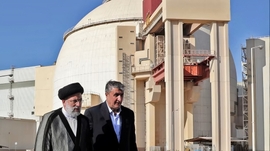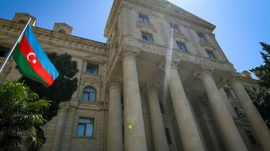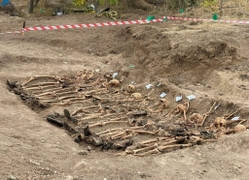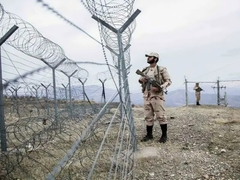Iran and Pakistan have signed eight cooperation documents in various fields, and agreed to strengthen ties to fight terrorism in the region.
Iranian President Ebrahim Raisi and his accompanying high-level political and economic delegation signed eight cooperation documents in trade, science and technology, agriculture, health, culture, and, legal and judicial issues after a meeting with Pakistan Prime Minister Shehbaz Sharif in Islamabad, on April 22.
"Establishment of free trade zones at common border crossings, cinema and media sector cooperation, animal health sector cooperation, security cooperation, cooperation in social welfare sector, cooperation in the standard sector and cooperation in the legal sector and judicial assistance in civil and commercial affairs were among the most important documents of cooperation (signed) between the two countries,” the official website of the Iranian president reported.
Speaking to the Pakistani prime minister, Raisi said "we believe that considering the existing capacities, we can transform the relations between the two countries, and therefore, in the first step, we agreed to reach the volume of $10 billion in trade between the two countries”.
In turn, Shehbaz Sharif referred to the long common borders between the two countries, emphasised the decisive fight against terrorism and efforts to improve security in the border areas. He also underlined the need to enhance economic prosperity in the border areas through the expansion of border markets.
The two leaders also noted the importance of strengthening official trade and agreed that the Pakistani side should accelerate the implementation of its obligations in the field of energy.
In a joint press conference with Shehbaz Sharif, the Iranian president referred to the common positions of Tehran and Islamabad in the fight against terrorism, organised crimes, narcotics, as well as various insecurities threatening the two countries and the region.
“This common view, which is based on defending human rights, is the main key for the bilateral, regional and international cooperation between the two countries,” Raisi said.
The visit came against the background of both countries carrying out tit-for-tat strikes in each other's territory against alleged militant targets in border areas this January. Iran launched strikes against the bases of Sunni militant group Jaish al-Adl inside Pakistan's Balochistan province on January 16. Meanwhile, Pakistan retaliated by striking terrorist hideouts in the Iranian province of Sistan-Baluchestan near the border with Pakistan on January 18.
Furthermore, on January 27, nine Pakistani workers were shot dead by unidentified attackers in Sistan-Baluchestan. On January 30, Iranian border guards killed a member of the Sunni militant group Ansar al-Furqan in an armed clash in the city of Rask.
On April 4, Jaish al-Adl launched attacks on multiple military and police bases in the cities of Chabahar and Rask. The clashes lasted for hours, and involved hostages, resulting in the deaths of at least 11 Iranian security officers and 18 militants.
Iran has long suspected Pakistan of providing a haven for insurgents and fostering instability on Iran’s southeastern border. Situated on the borders with Afghanistan and Pakistan, the impoverished province of Sistan-Baluchestan is home to some Sunni militants, and an entry point for smuggled arms and drugs.
For over 20 years, Baluch nationalists have engaged in a prolonged, low-intensity insurgency within Sistan-Baluchestan, seeking independence. The militant groups, Ansar al-Furqan and Jaish al-Adl increased skirmishes with Iranian armed forces in this province, in recent years.


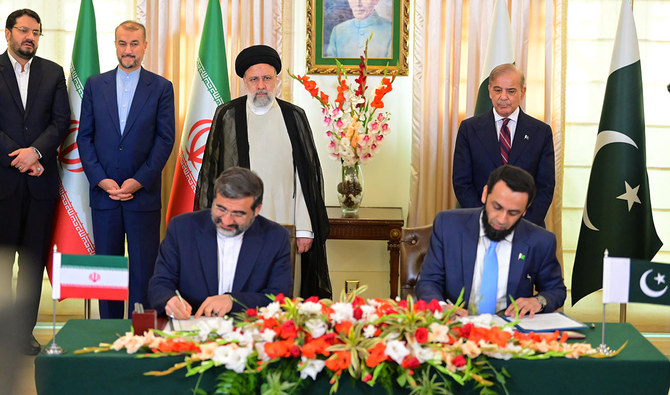




 President Ilham Aliyev praised Azerbaijan’s cultural diversity as a key factor in fostering peace, stability, and unity within the country, where a...
President Ilham Aliyev praised Azerbaijan’s cultural diversity as a key factor in fostering peace, stability, and unity within the country, where a...
 Ulviyya Fataliyeva, a female Azerbaijani chess grandmaster, was crowned this week at the European Women’s Chess Championship (EWCC) in Rhodes, Gree...
Ulviyya Fataliyeva, a female Azerbaijani chess grandmaster, was crowned this week at the European Women’s Chess Championship (EWCC) in Rhodes, Gree...
 The Iranian and Cuban transport ministers have discussed expanding maritime and air transportation cooperation.
The Iranian and Cuban transport ministers have discussed expanding maritime and air transportation cooperation.
